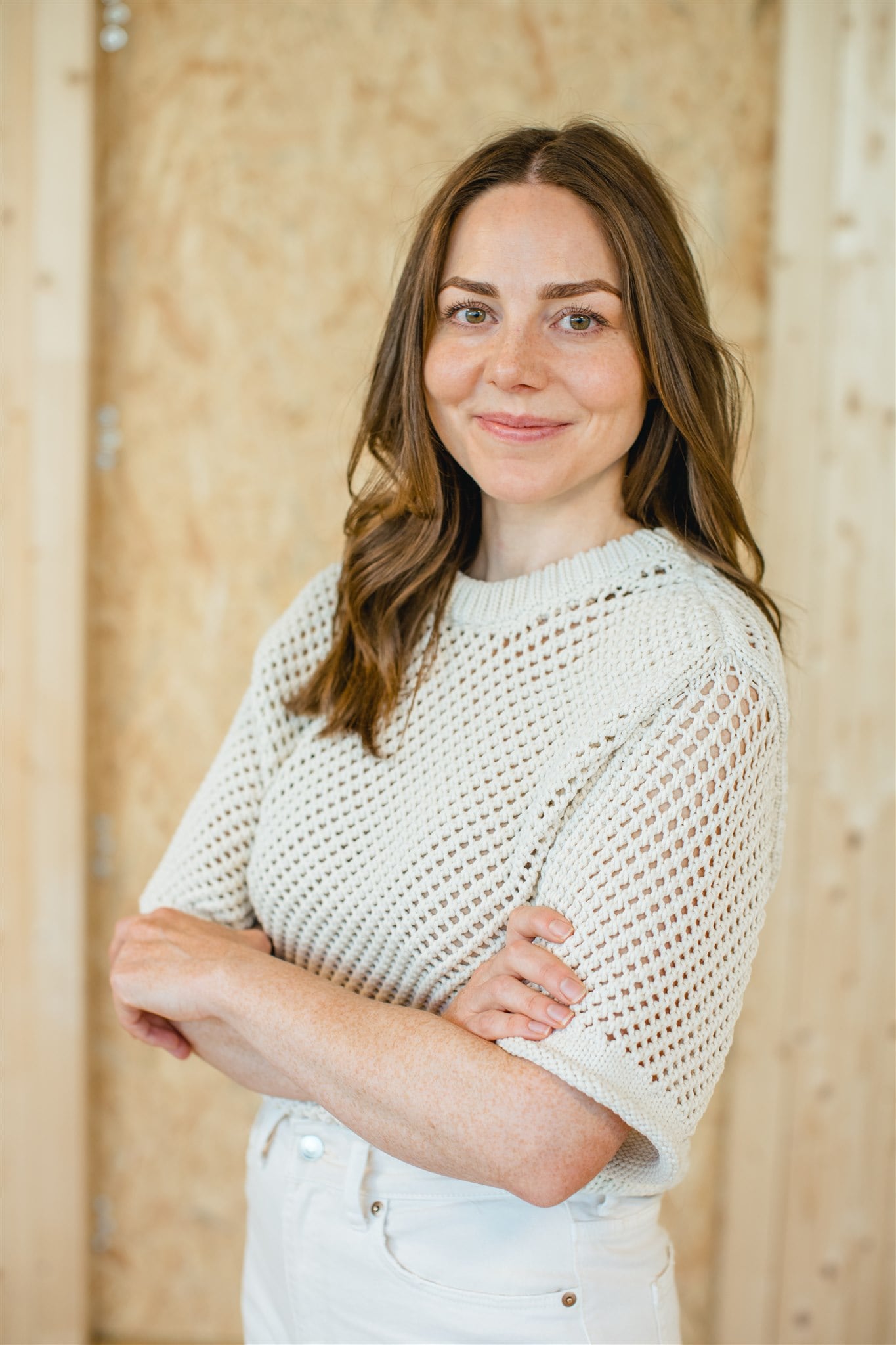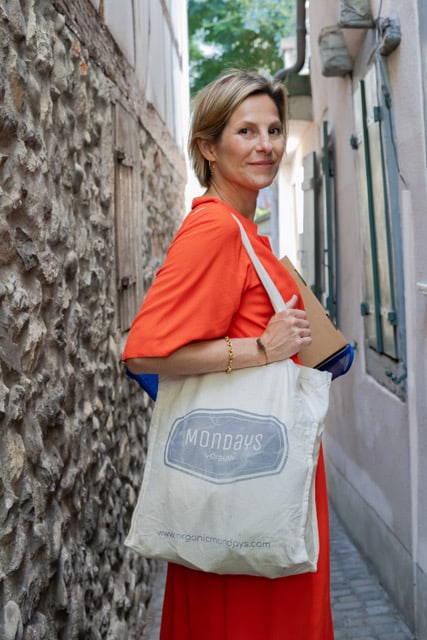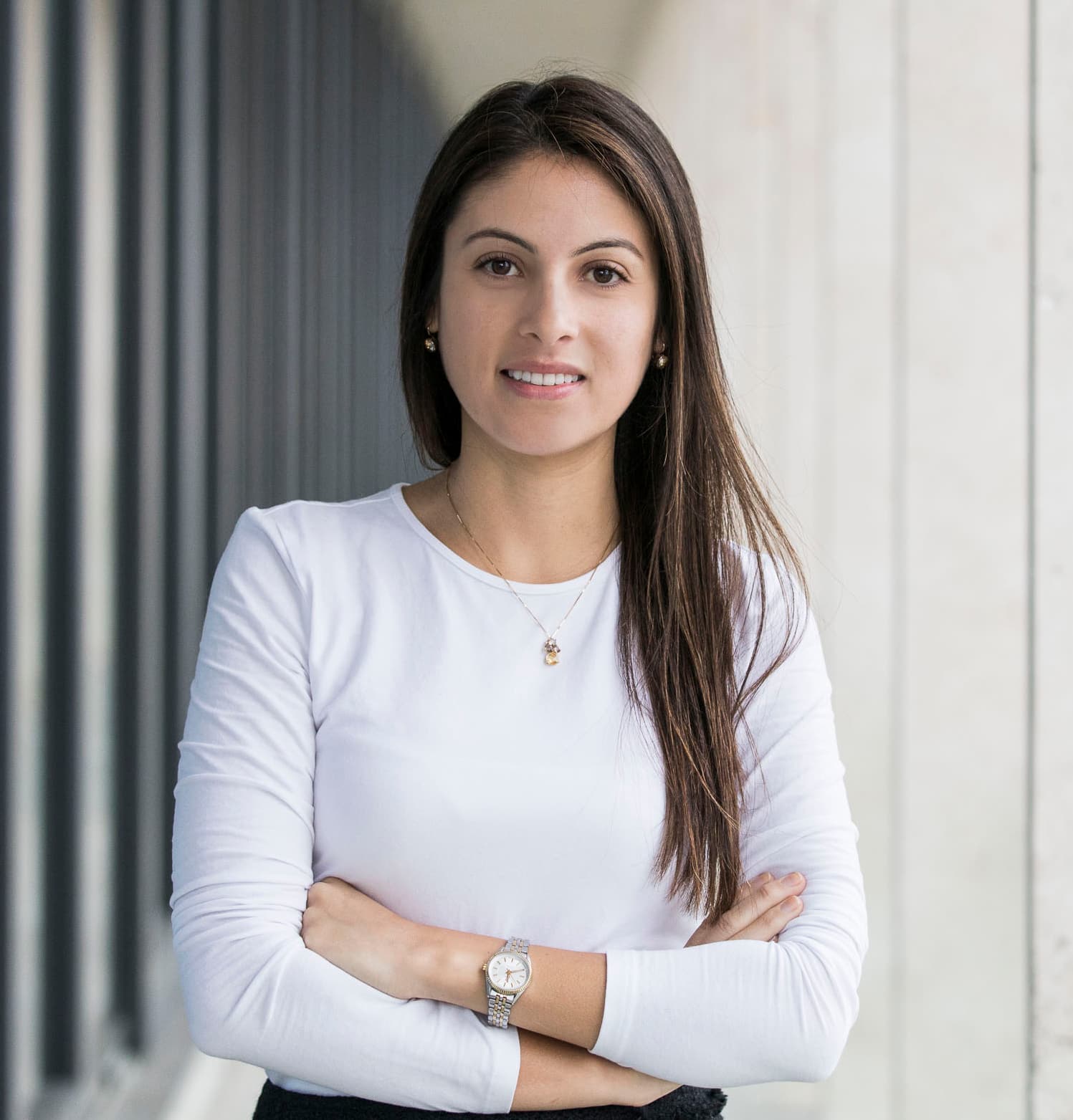Women are the exception in the startup world. Only 20 percent of founders in Switzerland are women. When it comes to money, things are even bleaker. Women's ideas receive just three percent of the capital. How do women move in a male system? Against which prejudices do they fight? And what can make the startup scene more female-friendly? In part 2 of the "Female Founders" series, four female founders share their experiences.

Belén Bolliger (36) founded OiOiOi together with Anna Mucha in 2020. The company offers organic clothing for babies and children in a subscription model. The Founders are currently completing their first investment round.
We were previously self-financed and are currently completing our first investment round. Although the startup scene is trying to develop in the direction of gender equality, we in Switzerland are soberingly lagging behind in international comparison. Female founders are still confronted with prejudices, of which their male colleagues hardly notice. We have also experienced this with our business. On the one hand, this is due to the business area: Our target groups are mothers and fathers. It's about babies and children. With this starting position, our business was unintentionally placed in a corner where it didn't belong. It's not a project. We have a vision: we want to revolutionise the children's clothing market by offering the most sustainable rental solution on the market. It is a contemporary and scalable service for today's parents.
Dads have cool startups, Moms have projects
On the other hand, we do get the question of compatibility from time to time. Had two men pitched the pitch instead of us and said, “Hey, we're dads and we've realized there's a gap in kids' clothing. There is a market that is crying out to be served and that needs sustainable and practical solutions.» The investors would say: "Wow, these are great dads with a cool idea." Compatibility of family and company would not be an issue. The focus would be clearly on the vision of the company. It shouldn't be any different for women.
In order for this to change, more diversity is needed on the part of founders and investors. This diversity must be strengthened and systematically promoted. This is the only way to make the startup ecosystem more inclusive and attractive. A push is needed now so that we can find a balance in the long term. Investors must endeavour to ensure an exciting pipeline of female-founded startups for upcoming investment rounds. Female founders, on the other hand, should benefit as much as possible from existing offers and networks in order to influence the ecosystem. We must be the change we want to see, not just wait for it.
Today, however, I feel more drive in the female startup scene and I also have many good encounters. The female founder community is growing and the mood has changed positively in the last two years. The mindset among founders today is characterised by optimism and the will to move forward. You will find support, openness, transparency and motivation. The VC side is also moving. Partner and analyst positions are increasingly being filled by female experts. This is important to counteract the similarity bias, i.e. the primal human need to work together with similar people and like-minded people. Because this one still exists.

Elisabeth Dewey (49) founded Organic Mondays together with Nancy Saddington in 2018. Her startup offers sustainable, plastic-free menstrual products for private individuals and companies on a subscription basis.
The idea for Organic Mondays has grown over the years. My co-founder found out after she gave birth that commercially available pads contain plastic, which is bad for your health. At the same time, we noticed that femcare has hardly developed at all in recent years. The shelves in the shops look like they did 20 years ago. The same products, the same brands.
In the kickstart program and when looking for investors, we quickly learned how important it is to know who you are talking to. Sitting across from women, our main message was the facts about plastic and its impact on health. That moved and shocked.
Lost in Translation – Period products are not niche
With men, we had to do things differently. We adapted our pitch to start with an example from their world. Basically, we had a lot of interested parties and good discussions. Nevertheless, the lack of concern was a challenge for us. This was often accompanied by a lack of interest in femcare and femtech. For example, investors commented that we offer a niche product. 50 percent of the population uses pads or tampons for around half of their lives. Another investor once corrected us when introducing ourselves as a femtech company. He said, "You mean fintech, don't you?" That was in 2019!
Investors once commented that we offer a niche product. This while 50 percent of the population uses pads or tampons for around half of their lives. Another investor corrected us when introducing ourselves as a femtech company. He said, "You mean fintech, don't you?"
As a founder, you shouldn’t take such situations personally and simply have to learn from them. We said to ourselves: If we had a medtech or biotech company, we would have to explain many things to our counterparts from the ground up. It's no different with femtech. For us, this meant that we had to provide figures and explanations – on the one hand for the market and on the other for the period. What is the period? How long does it take? How many products does a woman need?
Startup valuations are calculated by men
We have also been asked the classic “women’s questions” from time to time: “What does your husband think of your idea and the fact that you are founding a startup? How are you going to settle this with the family?" For this to stop, changes are needed in the minds of each individual and in the system as a whole. Young women are missing on the investor side. The areas of research and analysis are in the hands of men. This has consequences for the decisions and evaluations. Here I would be for a quote. It must be ensured that enough women are active on the investor side and contribute their views. I also think it's important that pitches are gender-neutral. Of course, this doesn't work equally well for all topics. But I am convinced that this can create room for change. We are all human and we all have unconscious biases that guide us and influence our decisions. We need to find ways to circumvent or eliminate these prejudices.

Laura Matter (22) founded the video-based dating platform Noii in March 2022, together with Thomas Kuschel and Vladislav Lisavcov. Laura Matter has been working on the idea and the platform for around a year and a half. The Founders are currently in their first pre-seed round.
It is the best time to start a business as a young woman. I am convinced of that. It takes some courage, but you get a lot of support. At least that's how I experienced it. I took over the financing process for our company because that's what suits me best out of all of us. I have many contacts, network well and know the company best. In the conversations, my experience was often questioned, which certainly has something to do with my age. It may be that investors are a little more critical of a young woman than of a young man. In general, however, I felt few prejudices. I even came across some male investors who are specifically looking for female founders. Of course it's not the majority yet, but things are still happening.
What do I wear, how do I look?
In this financing process I realized that as a woman I am more critical of myself than my two male co-founders are of themselves. I prepared myself very well for interviews. I went through a lot and also thought carefully about what to wear and what effect I would achieve with it. My two colleagues then said: "Just put something on." I've also often wondered what those around me think of me now that I'm doing a dating app. Women should be much more self-confident and less critical of themselves. I had to learn that too. Today I say to myself: I'm convinced of my idea, I want to stir up the dating market and I'm going to do it now.
Alone among men
In the startup environment, I would like to see two changes in particular. First, women must be given more space and be more present. I've been to a lot of events, and it wasn't uncommon for us to be one or two women out of 30 men. That can not be. It is the responsibility of the organizers to ensure that women are sufficiently represented. This also applies to further funding. More investments must flow into female founders.
The second point concerns the exchange among female founders. This takes place, but founders can become even more open to each other. I'll include myself there. When you talk to founders, many immediately tell you how much they have raised, how much they are giving away or which investors are on board. Sometimes there is something cocky about it and it comes across as boastful. On the other hand, I appreciate this openness. Women are much more reserved. People don't like talking about numbers or naming names. As founders, we have to live even more of a supportive spirit so that we can create a safe space for ourselves and our ideas.

Estefania Tapias (33) co-founded WeSpace, a co-working space for women. She founded the company in 2018 together with Laura Seifert. She has since left the startup, lives in Paris and works as a Smart Cities consultant.
One of our biggest challenges was getting our vision across. We founded a co-working space for women. After a pilot phase in spring 2018, we opened our space in the city of Zurich in the summer. So we had to decide how we would appear: are we communicating our actual intention? Namely that we want to push women in the business world and advance them with full force, no matter what? Because the gaps between female founders and male founders are too big and equality isn't where it should be yet? Or do we communicate more cautiously by talking more about the fact that we want to offer women an inspiring environment and practical support in the form of a network?
Men immediately feel left out
We chose the second way. Why? Because the first one often caused annoyance, incomprehension or disinterest. Many men were offended by our vision or felt left out by it, which they brought up at every opportunity. “As a man, am I even allowed in here?!”
We felt this especially when we decided to expand and look for capital. Up to this point we had financed the project ourselves. After a few discussions with potential investors, we pitched our idea differently: more neutral and closer to the men who were opposite us on the investor side. That had a certain effect. However, we were not always taken seriously. For example, I was dealing with an analyst at a VC fund. We exchanged ideas several times. Suddenly he passed the case on to a colleague. When I spoke to her, I realized that she didn't feel like talking to me. I asked her about it. She explained to me that she was the only woman in the company, and if a case comes in that has to do with women, it ends up with her – like us. The men had all put us in the women's drawer. That was just as frustrating for us as it was for our counterpart.
The search for capital was exhausting overall, mainly because most of the time we were busy finding tactical communication. At the end of 2019 we decided to sell the company because we both wanted to move abroad independently of each other. It has become clear to me that women function differently in the startup environment. Profit, rapid growth and high scalability of a business idea are not what drives many women. They act in a more impact-oriented manner. I'm not saying that's better. It takes all ideas. And all ideas need a fair chance. In order for this to succeed, diversity is essential - in the founding teams as well as on the investor side.
The world of startups is a gentlemen's club. Part 1 of the "Female Founders" series examined why this is a missed opportunity - for women and society at large - what needs to be done to create change.




